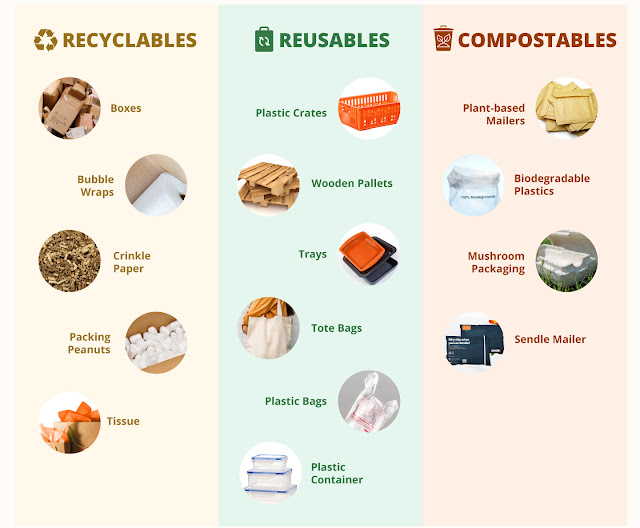Biodegradable food packaging
Biodegradable food packaging refers to packaging materials used in the food industry that have the ability to naturally break down and decompose into natural elements through the action of microorganisms or natural environmental processes. These packaging materials are designed to be environmentally friendly, reducing the impact of plastic waste on the environment.
Biodegradable food packaging offers several benefits compared to traditional non-biodegradable packaging materials. Here are some key points regarding biodegradable food packaging:
- Characteristics and Types: Biodegradable food packaging utilizes various biopolymers and blends that exhibit biodegradable properties. These materials can be used to produce films, trays, bags, coatings, and foamed products for food applications.
- Sustainable Alternative: Biodegradable food packaging provides a sustainable alternative to conventional plastic packaging, which often ends up in landfills or as litter. By utilizing packaging materials that can naturally decompose, it helps reduce the accumulation of plastic waste and its impact on the environment.
- Environmental Benefits: Biodegradable packaging materials, such as those derived from plants, wood, or cellulose, contribute to reducing carbon footprint and greenhouse gas emissions. These materials are typically renewable and require fewer fossil fuel resources during production compared to non-biodegradable plastics.
- Reduced Plastic Pollution: By using biodegradable food packaging, the risk of plastic pollution in ecosystems, including oceans and landfills, can be minimized. Biodegradable materials break down into non-toxic elements, reducing the environmental harm caused by persistent plastic waste.
- Consumer Perception and Market Growth: Consumer awareness and concern about environmental issues have driven the demand for biodegradable food packaging. Companies that adopt sustainable packaging practices can attract eco-conscious consumers, contributing to market growth for biodegradable packaging solutions.
- Innovations in Biodegradable Packaging: The development of smart bio-packaging represents an innovative approach to biodegradable food packaging. This new generation of packaging materials combines "green" properties with advanced consumer qualities, such as films and containers with antiseptic properties or enriched with vitamins and edible components [9].
It's worth noting that while biodegradable food packaging offers environmental advantages, proper waste management is crucial for its effectiveness. These materials often require specific conditions, such as industrial composting facilities, to decompose efficiently. Consumers and businesses should be aware of appropriate disposal methods to maximize the environmental benefits of biodegradable packaging.
Overall, biodegradable food packaging presents a sustainable and eco-friendly option for the food industry, addressing concerns about plastic waste and environmental impact. As consumer demand for sustainable practices continues to grow, biodegradable packaging solutions are expected to play an increasingly significant role in the market.
Xem thêm:1. Hang tabs
2. Khay nhựa định hình
3. Nhựa định hình


Nhận xét
Đăng nhận xét